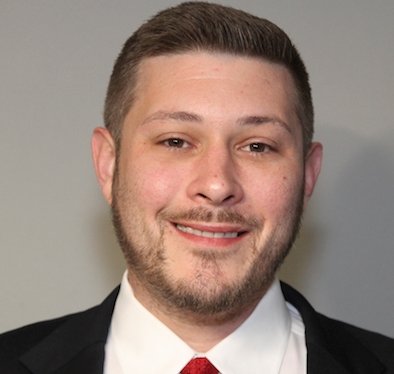Do they have to or don’t they?
That’s one of the big questions in the city now, as two online petitions collect signatures to push for enforcement of the city ordinance requiring municipal workers to live in Bayonne.
The petitions can be found at change.org. and are titled “Enforce Residency Ordinance #20-16” and “Enforce the City of Bayonne Residency Requirement.”
Backers of the Ordinance 20-16.1 have become more vocal during the administration of Mayor James Davis, since at least four of his top managers or advisers live out of town: Chief of Staff Andrew Casais (Roselle Park), Corporation Counsel Jay Coffey (Oceanport), Business Administrator Joseph DeMarco (Bernardsville), and Municipal Services Director Robert Wondolowski (Jersey City).
A Bayonne resident pointed out that in the administration of Mayor Mark Smith, Chief of Staff and Business Administrator Stephen Gallo and Municipal Services Director Joseph Waks both lived in Bayonne.
The ordinance requires that all nonresidents of Bayonne appointed or hired after March 8, 1991 “shall become bona fide residents of the city, within one year of their appointment.” It also stipulates that if notified about not yet being a resident, an employee has another six months in which to make Bayonne home; otherwise it “will result in removal or discharge.”
Civic activist and administrative critic Peter Franco started his petition drive because he believes that qualified Bayonne residents can be found to serve in municipal government.
“When it comes to the petition, my question to the Davis administration is, ‘Was there not a single resident in a city of almost 70,000 qualified for these jobs?” Franco said. “It is my understanding the ordinance allows our officials to appoint or hire outside of the city/county if they cannot find a qualified applicant.”
Public Works Department employee Stacie Percella, also vice president of a local employee union, posted comments on one of the petition sites. She said that the municipal employees that are non-uniformed are required to live in the city, and since those currently being criticized fall into that category, they should abide by the ordinance.
There were offline comments as well.
“I think if you work in our municipality, you should live in our municipality,” said Leo Smith Jr., Bayonne Board of Education assistant superintendent/business administrator. “That’s my personal opinion, not as business administrator.”
But the issue is not as cut and dried as many think, according to Coffey. For one thing, police officers and firefighters are exempted from city residency by state statute. So are several other municipal posts, such as counsel, attorney, engineer, health officer, auditor, and comptroller.
So in Coffey’s case, he is not in violation for two reasons; the counsel/attorney exemption, as well as Bayonne’s grandfathering of hires made prior to March 8, 1991.
By adhering to an ordinance like this, municipalities could hurt themselves in terms of finding the necessary talent for city posts, according to Coffey.
“You don’t want to do that, limit the fertile pool of applicants.” – Jay Coffey
____________
“I think it has to do with throwing out babies with the bathwater,” Coffey said. “Then you wind up wrecking the system, you wind up wrecking the people, and you don’t want to do that, limit the fertile pool of applicants.”
He gave the example of a 30-year employee, with vast institutional knowledge, who may want to move to a 55-and-over community as someone who would be lost due to the enforcement of this ordinance. Or the instance of a person already working for the city, who is now going to wed.
“Realistically, how do you tell someone you have to stay here forever to keep working here,” Coffey said.
In terms of his administration colleagues, Casais, DeMarco, and Wondolowski, Coffey said one could argue that they all possess specific skills that make their hires reasonable, especially DeMarco, who brings skills as an attorney to his business administrator duties.
Wondolowski said he knew of the ordinance when joining the administration, but was not deterred by it. He jokes that he lives only “75 feet from Bayonne,” in the Jersey City part of Country Village, a neighborhood shared by the two cities.
Living where he does allows him to check in on his mother and father who are 80 and 79, as well as raise his three children, who live in Jersey City but are heavily involved in Bayonne activities.
“I’m free to move to Bayonne; I want to,” Wondolowski said. “I haven’t found the right opportunity yet.”
Buying local
Franco said he believes in the residency rule because it benefits businesses in town if employees live here and patronize them.
“When jobs are awarded to out-of-towners they most likely are not utilizing C-Town, ShopRite, or Stop & Shop,” Franco said. “They most likely aren’t visiting our doctors, or picking up prescriptions at Hudacko’s.
“The money is possibly going to their local grocers, physicians, and pharmacists based on locality,” he said. “I believe the intent of this ordinance was to try to divert revenue back into our city.”
Lack of city enforcement
City Clerk Robert Sloan said the first iteration of the ordinance was actually passed in 1981, and was amended in both 1991 and ’95. Sloan, the longest-serving city hall employee, said he does not remember the ordinance ever being enforced.
City Council President Sharon Nadrowski said nothing had been mentioned to her personally about the residency ordinance or lack of enforcement of it. If it became a larger issue, it is something the council would consider changing, she said.
Joseph Passantino may be reached at JoePass@hudsonreporter.com.To comment on this story online visit www.hudsonreporter.com.
